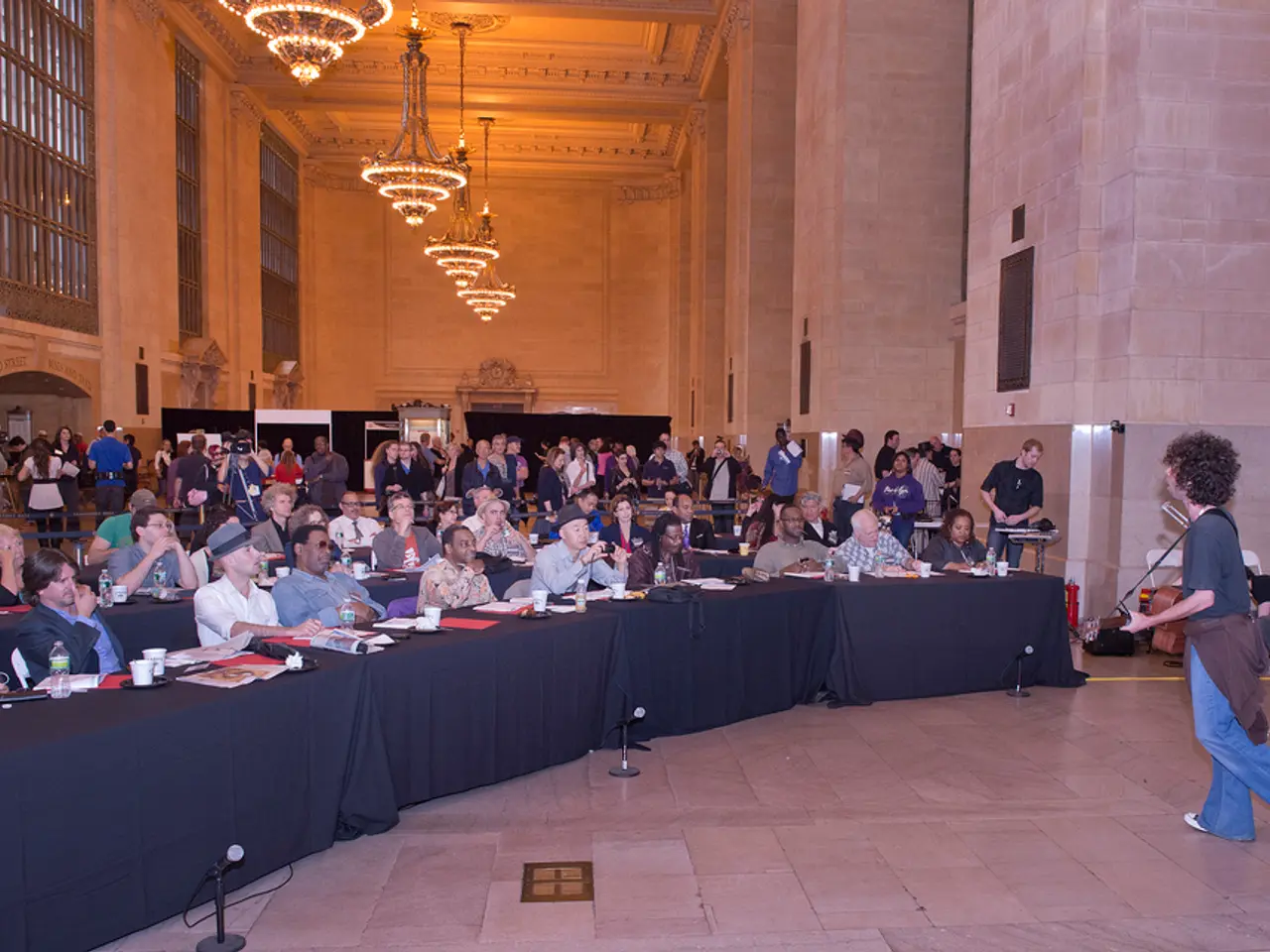Police department set to appropriate corporate earnings
In the heart of Germany, Berlin is taking a significant step towards regulating its housing market. The city's SPD Group leader, Raed Saleh, has proposed a framework law aimed at socializing housing, not outright expropriation [1].
The proposed law seeks to establish a framework for managing housing more socially, implying mechanisms to regulate and potentially limit corporate profits and rents. Although the details on how exactly it plans to cap corporate profits and rents are yet to be fully disclosed, the law's intent to "socialize" housing suggests an approach that controls rent levels and restricts the excess profits of corporate landlords [1].
This approach could involve caps or limits on rents charged and profits realized from rental housing to make it more affordable and accessible for tenants, targeting speculative or profit-driven corporate ownership. The law is intended to prevent the market from running amok, providing a framework for the state to intervene in areas such as rents or energy [2].
Raed Saleh, chairman of the Berlin SPD faction, plans to use this framework law to potentially cap corporate profits and rents. He suggests that a cap on profits could be implemented as a form of intervention in the market [3]. The project for the law was agreed upon in the coalition agreement in 2023 [4].
Economy Senator Franziska Giffey has clarified that the SPD is not aiming for general expropriation. Instead, expropriation, as referred to by Raed Saleh, does not mean confiscation but rather the establishment of a common economy [5]. The proposed law is intended to regulate the type and extent of compensation for expropriation [6].
Expropriation, as a last resort, is proposed for extreme cases in the housing market by Giffey [7]. Raed Saleh reiterates the importance of property involving responsibility [8]. He believes that there is no right to maximum profit and that companies should not be allowed to take more than the market allows them [9].
The factions of CDU and SPD will work together to legally formulate the expropriation process [10]. Both parties aim to create a strong economy in Berlin that can provide good jobs and framework conditions [11]. They also support investments and economic growth in Berlin [12].
The proposed law will be introduced into the House of Representatives by mid-December [13]. Raed Saleh wants to establish state-level regulation based on Article 15 of the Basic Law, which allows for the transfer of land, natural resources, and means of production to common ownership or other forms of common economy for the purpose of expropriation [14].
In summary, Berlin's proposed framework law aims at controlling and socializing housing use and ownership to keep rents affordable and reduce excessive corporate profit, without resorting to forced expropriation [1]. Further details on precise mechanisms would require additional, more specific sources.
The SPD Group leader, Raed Saleh, has proposed a framework law aiming to implement policy-and-legislation on socializing housing in Berlin, which includes politics related to the housing market and general news. This law plans to establish a framework for managing housing more socially, potentially limiting corporate profits and rents for the purpose of making housing more affordable and accessible. Economy Senator Franziska Giffey clarified that expropriation is a last resort for extreme cases in the housing market, and the factions of CDU and SPD will work together to legally formulate the expropriation process, which is part of the politics and policy-and-legislation surrounding this matter.






